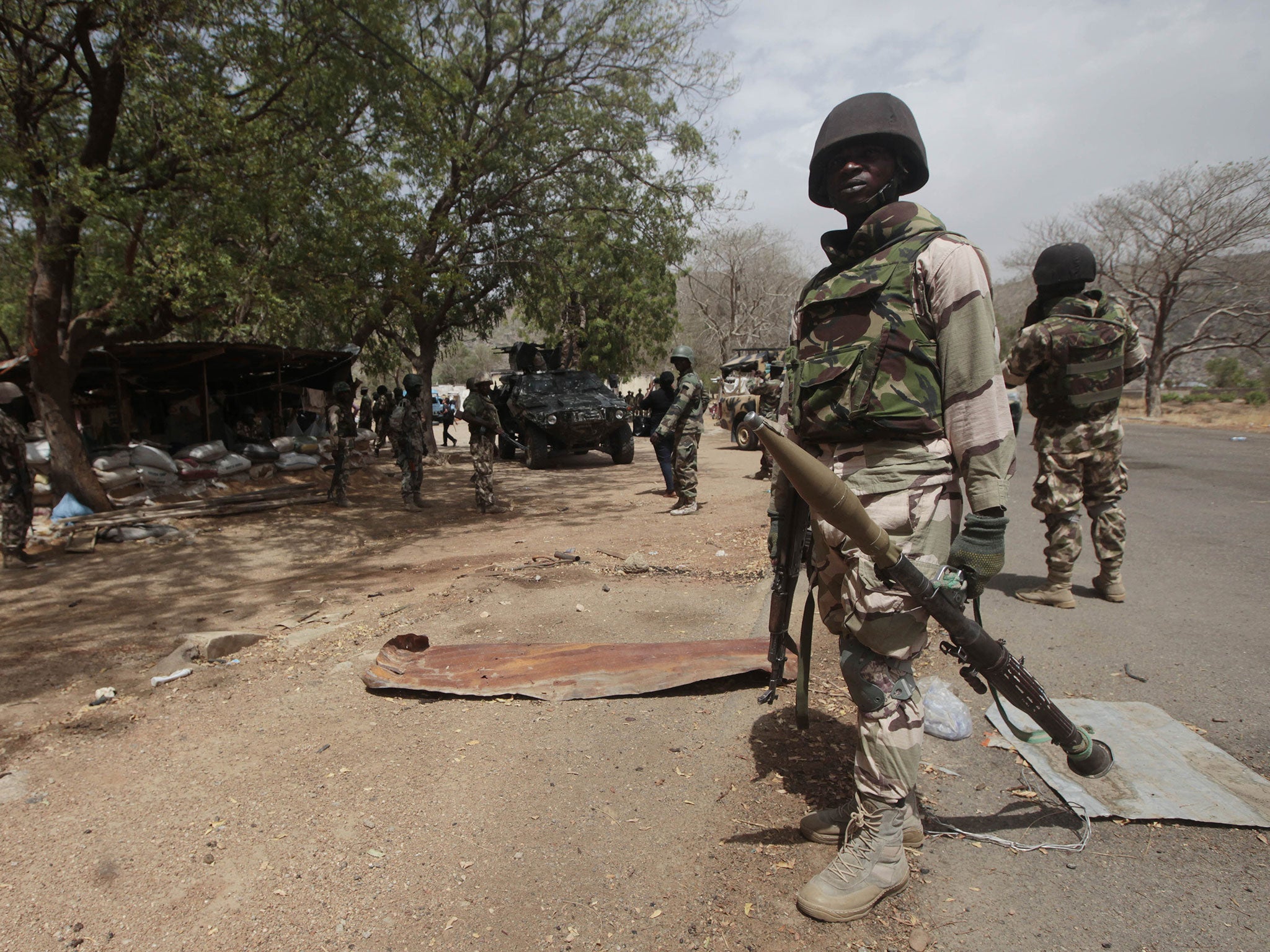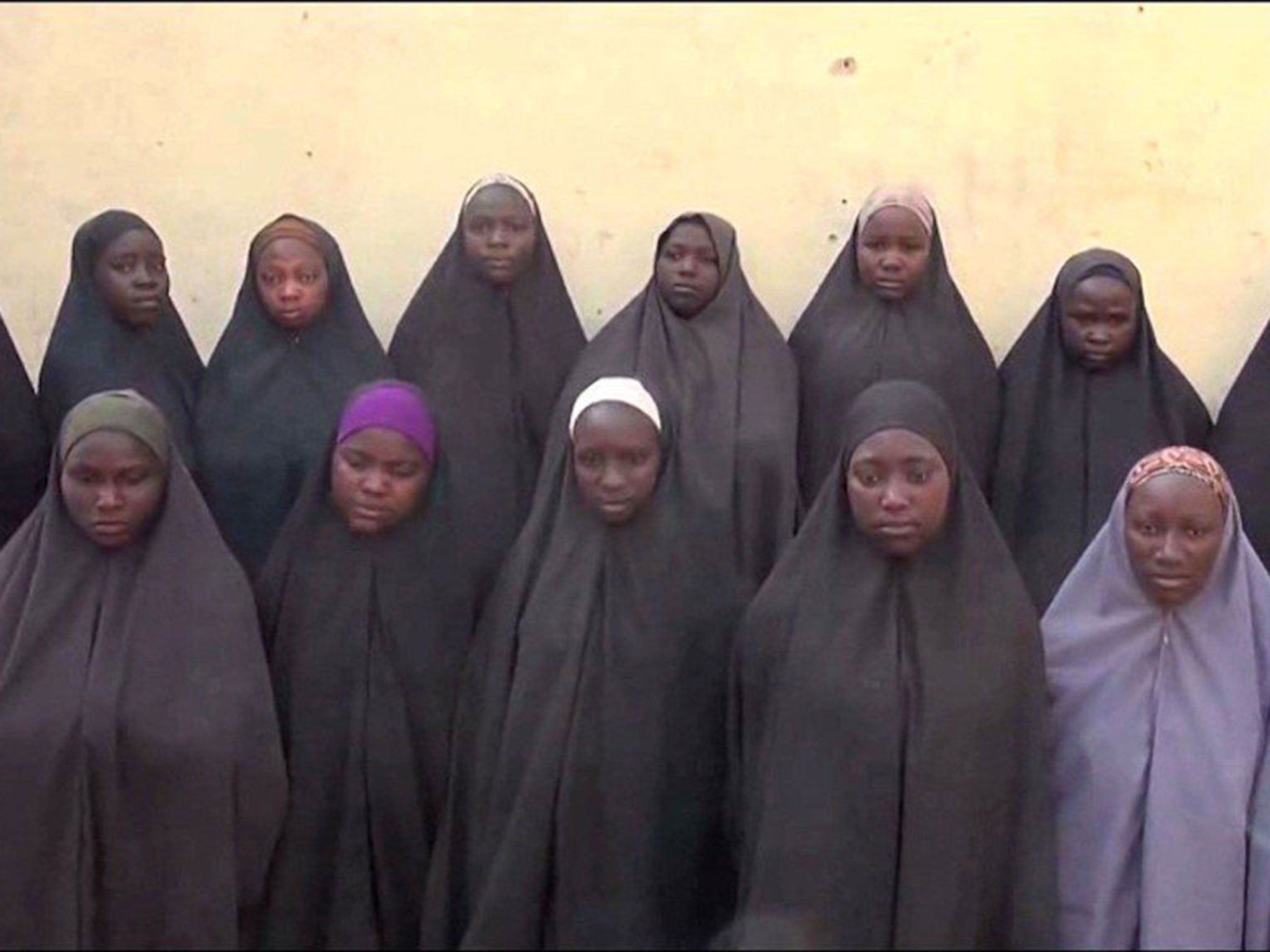UN Security Council expresses alarm over links between Boko Haram and Isis
UN concerned by reports that Boko Haram militants have been assisted by the extremist group

The UN Security Council has expressed alarm at ties between the Islamic extremist group Boko Haram and Isis - while a security summit is taking place in Nigeria to discuss efforts to combat the extremists.
In a statement approved by all 15 council members it demanded Boko Haram “immediately and unequivocally cease all violence and all abuses of human rights and violations of international humanitarian law."
The Council said they were alarmed at Boko Haram’s links with Isis. They also demanded the release of thousands of captives reportedly held by the group, including more than 200 schoolgirls abducted in Chibok, in Nigeria’s Borno State in 2014.

The statement supported Nigerian President Muhammadu Buhari’s “crucial initiative” to hold the summit in Abuja, Nigeria’s capital on Saturday.
Mr Buhari welcomed counterparts from Benin, Cameroon, Chad and Niger for the gathering - all leaders of countries making up a regional force against Boko Haram. French President Francois Hollande, UK Foreign Secretary Philip Hammond and US Deputy Secretary of State Antony Blinken were also due to attend.
Mr Blinken said he was concerned by reports that Boko Haram militants were going to Libya, where Isis has established a large presence in recent months.
“We’ve seen that Boko Haram’s ability to communicate has become more effective. They seem to have benefitted from assistance from Daesh,” he told reporters in Nigeria.
Mr Blinken added: “So these are all elements that suggest that there are more contacts and more cooperation, and this is again something that we are looking at very carefully because we want to cut it off.”
During Boko Haram’s seven-year uprising 2.2 million Nigerians have been internally displaced and 4.2 million people in the Lake Chad Basin region face a food security crisis, according to the Security Council.
The Council urged the international community to immediately support the provision of urgent humanitarian assistance for the people most affected by the crisis in Cameroon, Chad, Niger and noted that only 10 per cent of the $531 million required to fulfil such assistance had been received in 2016.
Amnesty International called on leaders attending the summit to ensure that justice remains a priority and to increase efforts to protect civilians.
Amnesty International’s Research and Advocacy Director for Africa Netsanet Belay said:
“Despite repeated promises, governments affected by the conflict have not adequately investigated evidence of crimes under international law and human rights abuses and violations nor taken steps to prosecute and bring to trial the suspected perpetrators. Now is the time to put those promises into action.”
US-backed African governments have recently made military advances against Boko Haram.
Soldiers and self-defence groups have reported intercepting several suicide bombers and have hemmed Boko Haram into the Sambisa Forest in the northeast of the country - but President Hollande said Boko Haram remained a threat despite the "impressive" gains.
Join our commenting forum
Join thought-provoking conversations, follow other Independent readers and see their replies
Comments